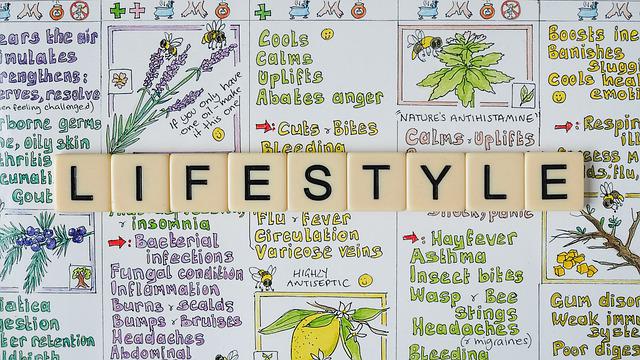High Alert Institute
Lifestyle Choices and Determinants of Health

Each one of us matters, has a role to play, and makes a difference. Each one of us must take responsibility for our own lives, and above all, show respect and love for living things around us, especially each other.
– Jane Goodall, Reason for Hope: A Spiritual Journey (1998)
Lifestyles and the choices that comprise them are complex and diverse. No matter what style of life you choose, there are many ways to align that lifestyle with choices supportive of health. Simultaneously, infusion of these same choices also can defend the health of family, pets, community, and the environment. The remainder of this article will focus on three broad determinants of health (DoH) categories that anyone can influence for the benefit vs detriment of ourselves, our neighbors, our animals, and our planet.
Food
Food intake and what influences food choices are common themes in DoH discussions. Cultural influences, socioeconomic factors, food deserts, and nutritional education are among the more familiar related topics. In recent years, though, attention has been given not just to the foods chosen but to the origins of those selections. Listed below are several ways that the impact of food sources affect the interwoven factors of planetary DoH:
- Sustainability of crops, flocks, and herds – Consider purchasing food from vendors that support and promote local sustainability. More than a culinary trend, the farm-to-table movement is a positive DoH choice.
- Comparative carbon “foodprint” of protein sources – Production of food sources like plants or poultry typically have a smaller carbon footprint than pork or beef. While a permanent change may not be one’s preferred choice, consider alternating to reduce the carbon burden over time.
- Regional food production patterns – The degree of crop diversity impacts the nutritional value of the harvest, whether for human or animal consumption, and is a DoH.
- Effects of climate change – Loss of arable land is a DoH resulting from climate change, as temporary vs permanent farm crops are more susceptible to global warming.
Habitat
Where we live, work, learn, play, shop, and worship are all subject to location-specific factors that are established DoH. Forming interdependent layers that impact the surrounding flora and fauna, we can influence the factors below through our choices, our actions, and our advocacy:
- Types of pollution – The World Health Organization identifies air quality (indoor and outdoor), water quality, and noise pollution as significant determinants of health.
- Regional socioeconomic variables – Type and availability of housing, education, access to healthcare, income, and cost-of-living are DoH factors often included in this category.
- Cultural factors – Community cohesion, diversity, equity, and inclusion are DoH typically described as culturally-based.
- Sociobehavioral factors – These are DoH influences that include access, discrimination, violence, abuse, and crime.
Mitigating any of these expansive problems via individual choices may see daunting but in-roads are possible. For example, improving indoor air quality can start by learning how to reduce exposure to volatile organic compounds (VOCs). The simple act of selecting one carpet vs another for no additional dollars can reduce this source of indoor pollution and reducing the market for such products benefits the environment overall.
Resilience
The ability of people, populations, animals, plants, and the environment to mitigate, compensate, and recover in the face of adversity characterizes resilience. Exemplifying the complexity of the one health/one nature model is both the culmination of many DoH factors and a separately measurable DoH. There are some surprisingly simple individual choices that can promote resilience, as follows:
- Physical activity – Even small degrees of movement, like dancing while you cook or clean, not only adds exercise but provides stress relief and promotes joy.
- Flex a mental muscle – Play along with a gameshow, read about something new, enjoy a word or numbers game. Research shows that when we challenge ourselves mentally on a regular basis, we build neurocognitive resilience, reduce depression, slow dementia, and recover more quickly from neurological injuries, such as stroke and head trauma.
- Reduce stress and guilt – Behavioral experts agree that honoring your genuine self bolsters mental health, reduces blood pressure, and benefits cardiovascular health.
- Supportive relationships – Choosing positive social connections directly impacts mental health by reducing stress, blood pressure, risk of stroke, and risk of heart attack, while increasing overall quality of life.
Simply put, there is no single definition of “healthy lifestyle” for any given individual or group. The relative healthiness or unhealthiness of a lifestyle is the outcome of many choices and related behaviors interacting with physical and social environments. As a result, the impact of our choices extends beyond the individual, yielding a wide range of determinants of health (DoH) affecting all living things.
Author: Allison A. Sakara
High Alert Institute
4800 Ben Hill Trail
Lake Wales, FL 33898
Office: 863.696.8090
FAX: 407.434.0804
EIN: 27-5078437
Info@HighAlertInstitute.org
Privacy Policy
Cookie Policy
Terms of Use
Disclaimers
Get Your Data
Shipping Policy
Message Us
Transparency
Registrations
Do Not Sell Info
Return Policy
A COPY OF THE OFFICIAL REGISTRATION AND FINANCIAL INFORMATION MAY BE OBTAINED FROM THE DIVISION OF CONSUMER SERVICES BY CALLING TOLL-FREE, WITHIN THE STATE, 1-800-435-7352 (800-HELP-FLA), OR VISITING www.FloridaConsumerHelp.com. REGISTRATION DOES NOT IMPLY ENDORSEMENT, APPROVAL, OR RECOMMENDATION BY THE STATE. Florida Registration #CH68959
REGISTRATION WITH A STATE AGENCY DOES NOT CONSTITUTE OR IMPLY ENDORSEMENT, APPROVAL OR RECOMMENDATION BY THAT STATE.










